No poverty
After switching to biogas, the households dispose of around 40% higher annual income due to saved energy and fertilizer expenditures, higher agricultural output, etc.Zero Hunger
Better food security and nutrition because of increased animal welfare and an additional 182,000 ha of farm land under sustainable and more productive agricultural practices.Good Health &
Well-being
Improved health due to reduced indoor air pollution and better hygiene at the farmer’s premises is particularly beneficial for women and children spending much of their time at home. Quality Education
All participating households have been trained in biogas digester and cook stoveuse; in addition, some 2,000 people have been qualified as biogas techniciansunder the programme.Gender Equality
Roughly 1,000 jobs have been created for women by the PoA; new biogas stoves save approx. 1.5 hours cooking time per day for women which is now available for other purposes.Clean Water and Sanitation
Improved waste management, less fertilizer & pesticide use and better sanitation systems protect soils and water resources and benefit both local people and environment.Affordable and
Clean Energy
All PoA households get access to clean, reliable, convenient and affordable biogas for cooking, lighting or heating. Decent Work and Economic Growth
An estimated 10,000 total jobs related to construction and maintenance of biogas plants have been created by the project in the local biogas sector, thereof some 2,000 permanent jobs and 8,000 temporary jobs.Industry, Innovation and Infrastructure
Up to now, the PoA has induced roundabout EUR 300 million of total investments in domestic biogas technology, related services, as well as modern energy and waste management infrastructure.Reduced Inequalities
Sustained and notable income growth of participating households helps reducing existing inequalities between urban and rural Sichuan.Responsible Consumption and Production
Biogas digesters avoid untreated manure corresponding to almost 220,000 tons of dry matter per year and generate high-quality organic fertilizer from digestate instead.Climate Action
The PoA saves approx. 725,000 tCO2e of greenhouse gas emissions year by year and reduces annual coal consumption by about 340,000 tons.Life on Land
Due to the PoA, annual firewood use decreases by approx. 690,000 tons and almost 100,000 tons of chemical fertilizer are replaced p.a. by superior and more eco-friendly natural fertilizer.Partnerships for the Goals
Solid and long-term multi-stakeholder partnership between German and Chinese project participants strengthens international cooperation for the UN SDGs.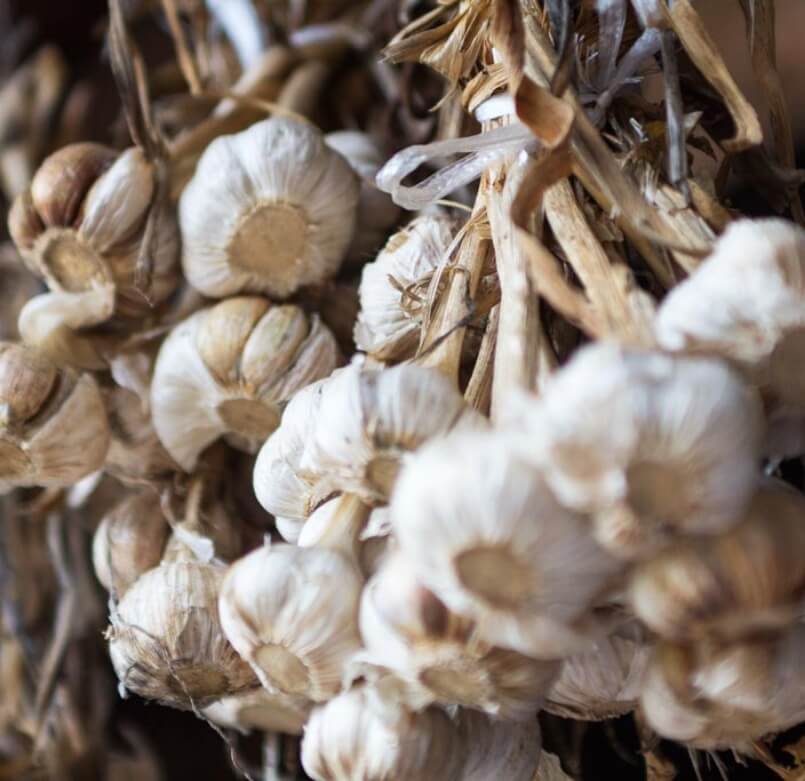
Improving Rural Lives
The main reason for the participating households to install a biogas digester is not the promotion of climate protection or sustainable development. It is the various tangible improvements to people’s lives that make biogas generation from animal manure and other organic waste so attractive for them.
Whether it is the improvement of indoor air quality, the convenient availability of cooking fuel or the reduced spendings on coal and other fuels, the households have a number of benefits from joining our biogas programme and installing a biogas digester. Learn more about how the programme changes rural lives for the better and how these co-benefits correspond with this PoA’s SDG impact!
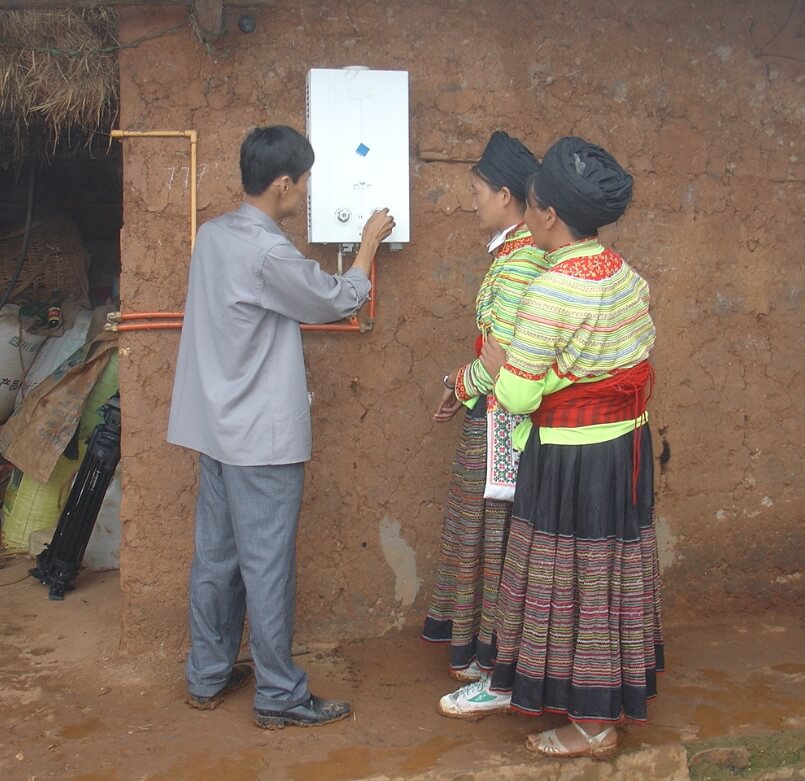
Reduced Indoor Air Pollution (SDG 3 – Good Health and Well-Being)
Households in Sichuan traditionally use either coal or firewood as cooking fuel. This does not only cause carbon dioxide emissions from fossil fuels, but also severe air pollution. Several studies have shown that this air pollution causes severe health risks and can reduce average life expectancy significantly. In contrast, reducing the dependancy on coal and firewood and replacing it with clean fuel like biogas can improve the situation especially of women and children considerably.
As this programme provides clean cooking fuel and reduces the consumption of both coal and firewood, the positive effect is even higher than can be seen from mere emission reduction data. Because firewood in Sichuan is renewable biomass and its reduced consumption does not have an impact on climate change, we do not calculate it.
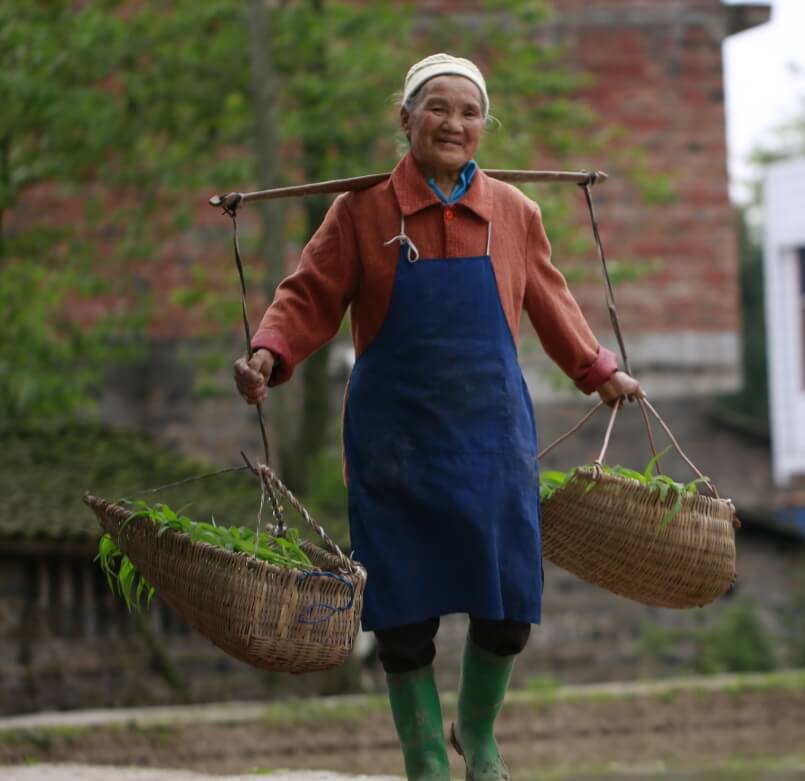
Improved Sanitation (SDG 6 – Clean Water and Sanitation and SDG 3 – Good Health and Well-Being)
According to the World Bank, in 2011, at the very beginning of this PoA, 65% of China’s population had access to improved sanitation. However, that means, that still 35% or more than 470 million people, which is nearly the number of people living in the EU, did not have access to clean sanitation.
This is where our programme supports the rural population. In the remote rural regions of Sichuan, it is still not uncommon, that people use an open pit latrine outside the house as a toilet. The digesters installed by the programme are connected to the toilets and directly flush into the digestion chamber, which works similar to a septic tank. This is defined as an improved form of sanitation by the WHO / UNICEF Joint Monitoring Programme (JMP).
Providing the households with access to improved sanitation reduces the risk of many diseases, like diarrhoea, trachoma or ascariasis and infections with parasites like hookworms.
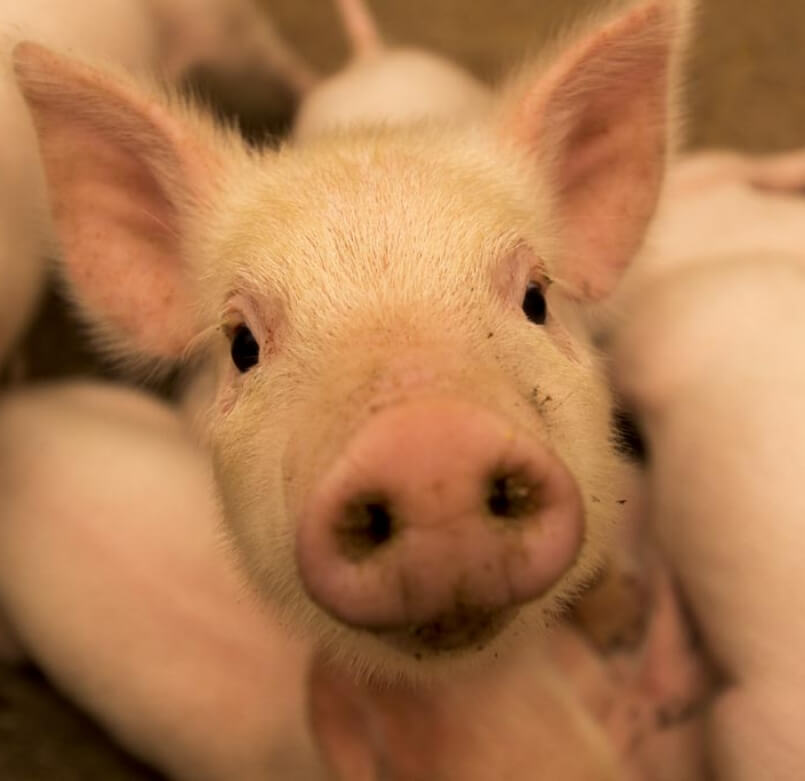
Hygienic Manure Treatment (SDG 12 – Responsible Consumption and Production and and SDG 3 – Good Health and Well-Being)
A precondition for the households to qualify for this programme is that they are raising pigs and store the manure in traditional pit storages below or besides the animal confinements. These open pits do not only generate methane emissions, but they are also imposing a severe health risk for animals and humans. Similar to conventional latrines, they are a source of diseases and parasite infections. Additionally, they impose the risk of zoonotic diseases (diseases that can be passed from animals to humans).
By installing a biogas digester with an inlet pipe directly connected to the animal barns, the households can sweep the manure directly into the digester without any further contact. Stored in the septic tank of the digester, both the odour of the degrading manure and the risk of infections are greatly reduced.
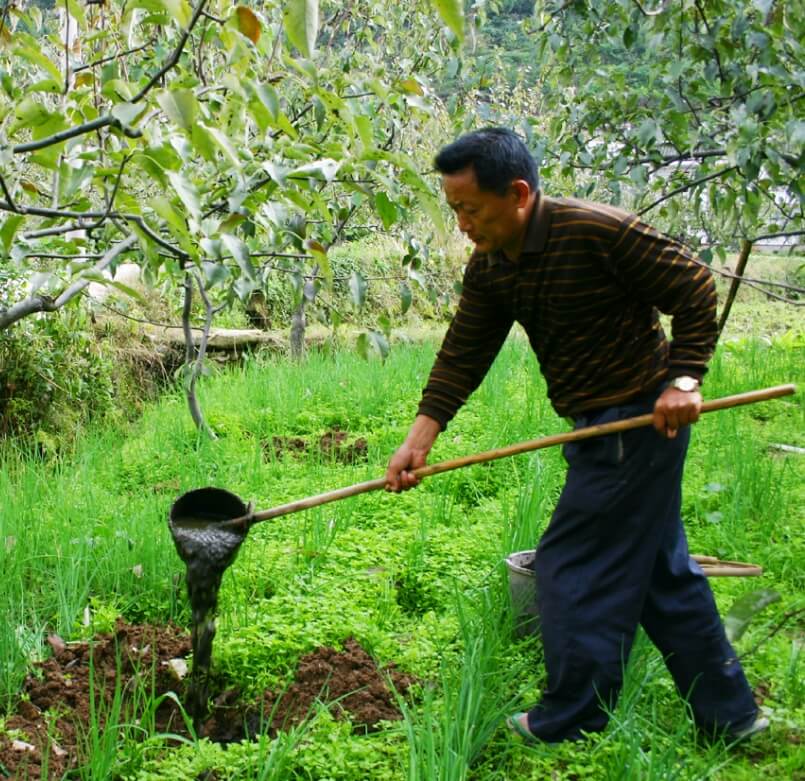
Reduced Spendings on Coal (SDG 1 – No Poverty)
Both traditional fuels, coal and gas, come at a price. Coal is usually purchased in the next village and firewood is collected or chopped in nearby woods. Sichuan is a very large heterogeneous province with countless regions that differ in remoteness, infrastructure, forest cover, availability of coal, etc. It is therefore not possible to clearly quantify the costs of fuel like it could be done for a traditional CDM project. However, it can be said that an average household would usually spend 1,500 RMB per year on fuel.
With the installation of a biogas digester, these expenses can be saved as the households produce their own fuel and achieve energy autonomy to a large extent.
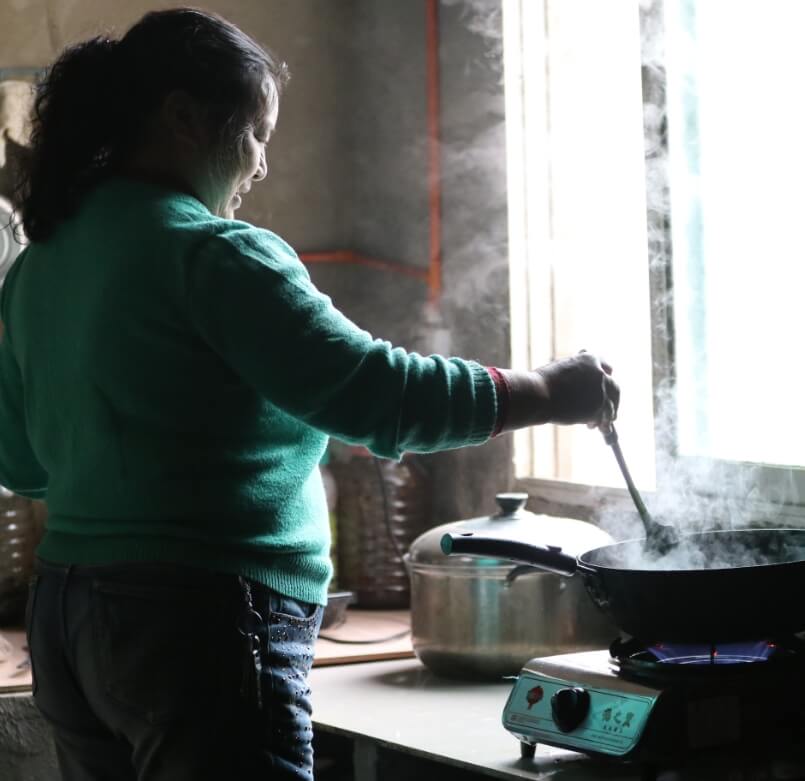
Clean and convenient Cooking Fuel (SDG 7- Affordable and Clean Energy)
Biogas is generated in the digester and delivered to the gas cooker through a rubber hose. As long as there is gas in the digester, it can easily be extracted and is available within seconds. Whereas households need to always keep a sufficient stock of coal and wood, the gas is generated constantly and therefore does not need to be stored.
Furthermore, the gas cookers do not need to be fired up, but just switched on and off. It is therefore much easier to use just the amount of fuel needed to prepare food, instead of having to waste a lot before and after the actual cooking process.



